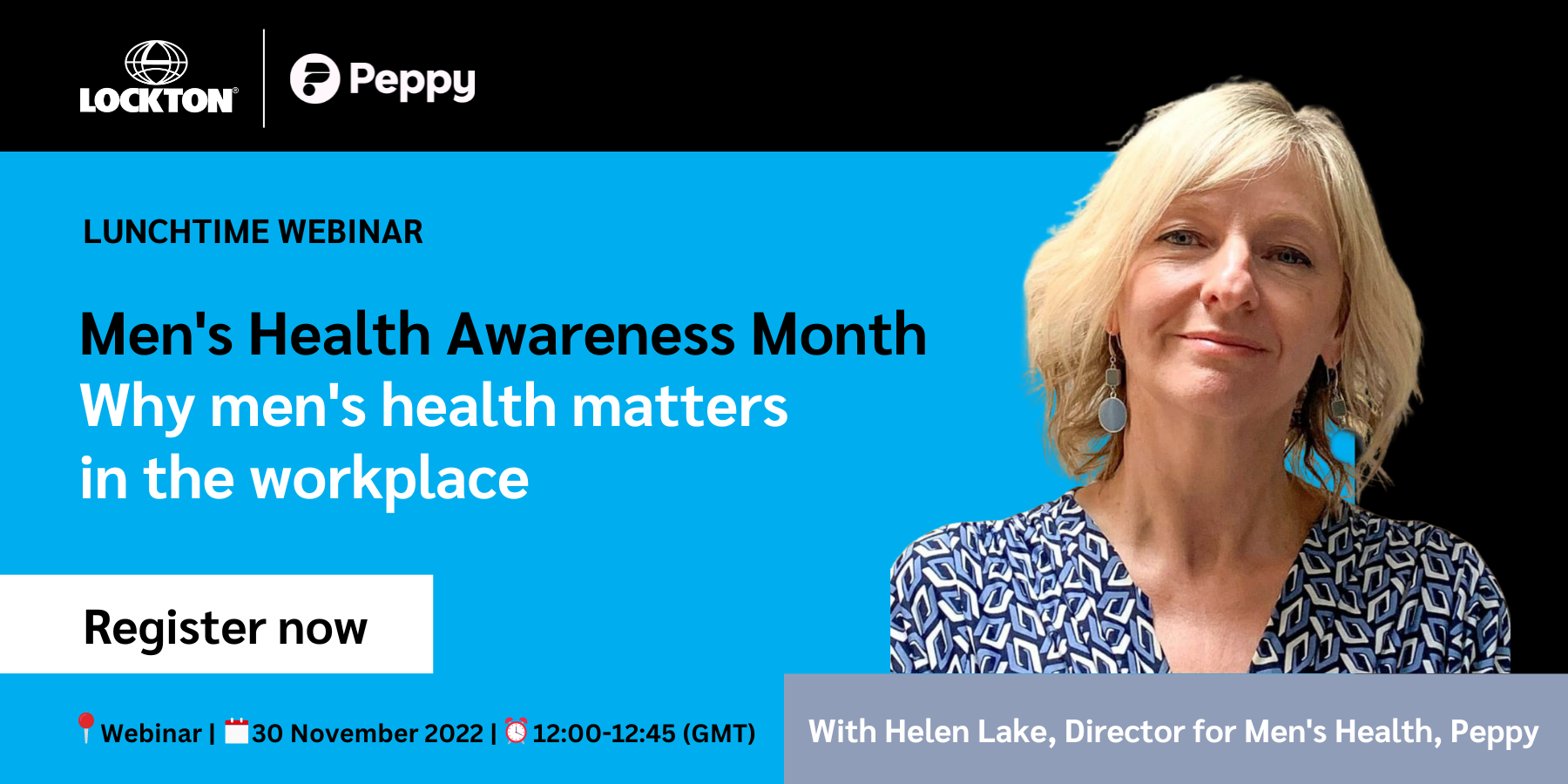This article has been written in conjunction with Helen Lake, Director of Men's Health, and Francesca Steyn, Director of Fertility and Women's Health, at Peppy (opens a new window).
Employees are increasingly expecting gender-specific support from their employers when it comes to their wellbeing offering. This is part of a wider pick and mix trend in employee benefits but also an acknowledgment of the specific needs of a diverse workforce.
Health is not gender neutral
The need for specific support can no longer be overlooked. Whilst women may need support to deal with the symptoms of menopause or menstruation while working, men may need to be targeted with specific awareness campaigns for example around prostate cancer to promote regular health checks.
Research shows that men visit the general practitioner (GP) 50% less than women (opens a new window) so employers should consider how they can engage men and support them in overcoming barriers to access healthcare. Employers need to offer access to specific and realistic support for all the gender spectrum if they want to attract and retain a diverse workforce.
Individual employees expect to feel understood
Gender-specific healthcare is about tailoring services and communications to the individual, offering empathetic, personalised support for common problems. Employers need to offer facilities where employees can talk about personal issues confidentially and comfortably. For those who identify as male this might involve urinary issues, testicles, or erectile dysfunction. But for others, it may also mean offering support with psychological and emotional wellbeing and offering education sessions on factors that may impact certain groups such as the LGBTQ+ community. The messaging around this offering needs to be gender specific, whilst not excluding anyone.
Talent attraction and retention is key
Providing specialist workplace benefits that support employees through difficult life situations such as menopause, fertility, early parenthood, gender transition, or other issues not traditionally covered by private medical insurance can have a huge impact on productivity, absenteeism and retention. Nowadays, being an employer of choice goes beyond work perks and salary.
Whether it's fertility, pregnancy, child rearing or menopause that they’re dealing with, if women are not supported at work or haven’t been able to have the right conversations with their employers, they may consider leaving the company. Studies have shown that one in four women going through the menopause consider leaving their job due to symptoms (opens a new window), while 88% of employees would move job for better fertility benefits (opens a new window).
Increasingly, the same could be said for men and LGBTQ+ employees who may feel unsupported or overlooked in their place of work. For example, men may be single parents and trans or non-binary people may also have periods.
It's important that employers take action to support their people in all these areas and circumstances. This may entail giving access to professionals, charities and services, ensuring that digital support is made available and communicated effectively, and providing mental health support across the board.
While guiding staff to where they can find help, a policy is just the first step. Raising awareness and listening to individual needs is essential, as is giving managers guidance to have these conversations confidently with team members. Creating an open, inclusive culture gives organisations the edge.
Benefits must support the whole workforce
Health benefits need to be extended to all demographic groups and levels of seniority. At the same time, support often needs to be gender specific, but adjustments to the workplace for the benefit of one gender may often be good for everybody. For example, if menopausal women ask for changes to the temperature in a stuffy office this may benefit the whole workforce.
Gender-specific must be gender-inclusive
The gender split between male and female is no longer adequate to encourage diversity and inclusion. Forward-thinking organisations must break down outdated gender norms and think of gender as a more fluid construct. LGBTQ+ people are often excluded when things are organised, referred to or addressed by traditional gender, making support sometimes difficult to access.
If a form of care is labelled for men it may not reach those who don’t identify as a man, even if it’s medically relevant to them. Those who are outwardly a man but have a cervix, still need to be invited to smear tests. This needs to be considered when drawing up gender-specific policies. To not exclude anyone, health support needs to be both specific and inclusive.
This article was written in partnership with Peppy (opens a new window), the leading digital health app offering support for menopause, fertility, pregnancy and early parenthood, men's health and women's health. Lockton are running a webinar with Peppy on 30 November, 2022 as part of Men's Health Awareness Month on 'Why men's health matters in the workplace'. Register now (opens a new window).

For more information on gender-specific health support in your business and services available, including Peppy, please contact:
Chris Rofe, Partner
Lockton People Solutions
T: +44 (0) 79 3030 7266

